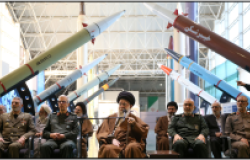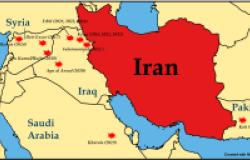Walking Away: Disengagement and De-Radicalization From Terrorism
John Horgan, Director, International Center for the Study of Terrorism, Pennsylvania State University
Overview
This event, co-sponsored with Georgetown University's Center for Peace and Security Studies, is part of International Security Studies' ongoing Terrorism and Homeland Security Forum.
John Horgan, an applied forensic psychologist, discussed the findings of his fieldwork interviews in Europe, the Middle East, and South Asia with former members of radical and extremist groups, ranging from the IRA to Al Qaeda, and from European neo-Nazis to Pakistan's Jamaat-e-Islami. He argued that the inability of governments to stem the tide of terrorist recruitment reflects a lack of knowledge about the underlying processes. The recent attention on the phenomenon of disengagement arises from the increasing visibility of former terrorists, increased research on group weaknesses, and the increasing prevalence of deradicalization programs in countries such as Saudi Arabia.
Horgan's focus is on the individual level of analysis. His 18-month pilot study entailing interviews with 29 former terrorists and an additional 23 supporters and family members yielded detailed case studies. Citing the pioneering book, Origins of Terrorism by Wilson Center Senior Scholar Walter Reich, Horgan noted that the role of the individual must be viewed in the broader context of the group, organization, and ideological or religious milieu within which that individual operates.
The popular debate on terrorism frequently focuses on the question of terrorists "becoming" – what motivates them to perpetuate horrific acts. What is striking, Horgan noted, is the relatively miniscule number of people from radicalized communities that actually become terrorists. The utility of profiles is limited since they miss the critical underlying process of radicalization.
Horgan drew the important distinction between "disengagement" and "deradicalization." Disengagement is a behavioral change, usually the result of breaking off participation in terrorism; whereas deradicalization is a cognitive change, usually the result of a reorientation in belief or ideology.
The key finding of his comparative case studies across terrorist groups is that "just as there are multiple routes in" so too are "there multiple routes out." The major reason for leaving terrorist groups is "disillusion from the disparity between fantasy and reality." The disillusionment frequently arises from an assessment that the group's goals are unattainable, revulsion with the group's violent methods, the unrelenting pressure of being in a terrorist group, and the competing loyalties between group and family obligations. These "push" factors need to be complemented by "pull" factors, including: the availability of an exit route, an amnesty or reduced sentence for crimes committed, education and job training, and economic support.
The major recommendation emerging from Horgan's analysis is that U.S. policy should aim to "systematically develop counter-narratives [to those of terrorist groups] drawing on former terrorists and victims."
Robert Litwak, International Security Studies
Documents & Downloads
Thank you for your interest in this event. Please send any feedback or questions to our Events staff.










